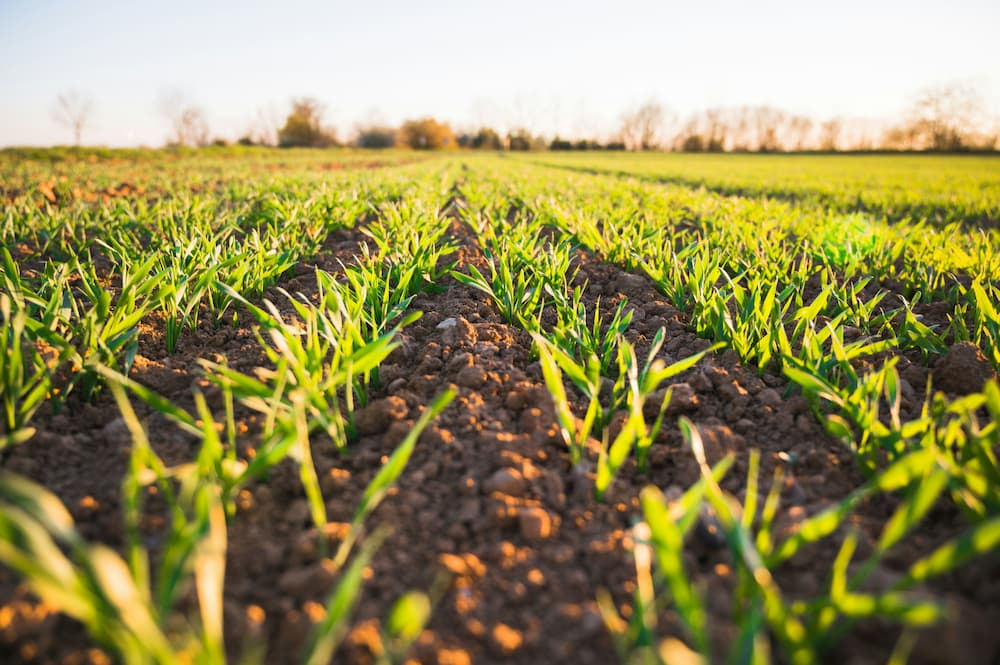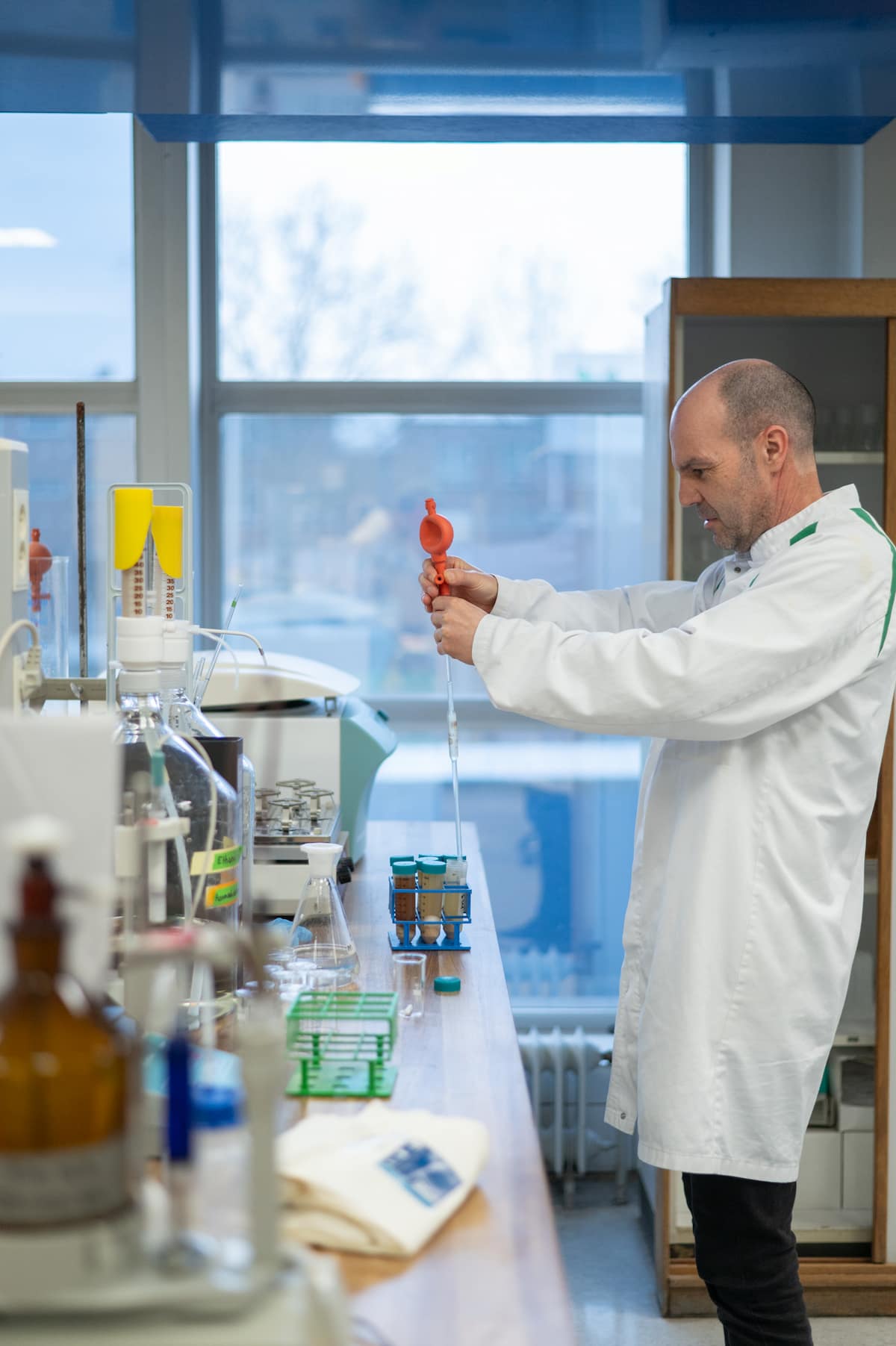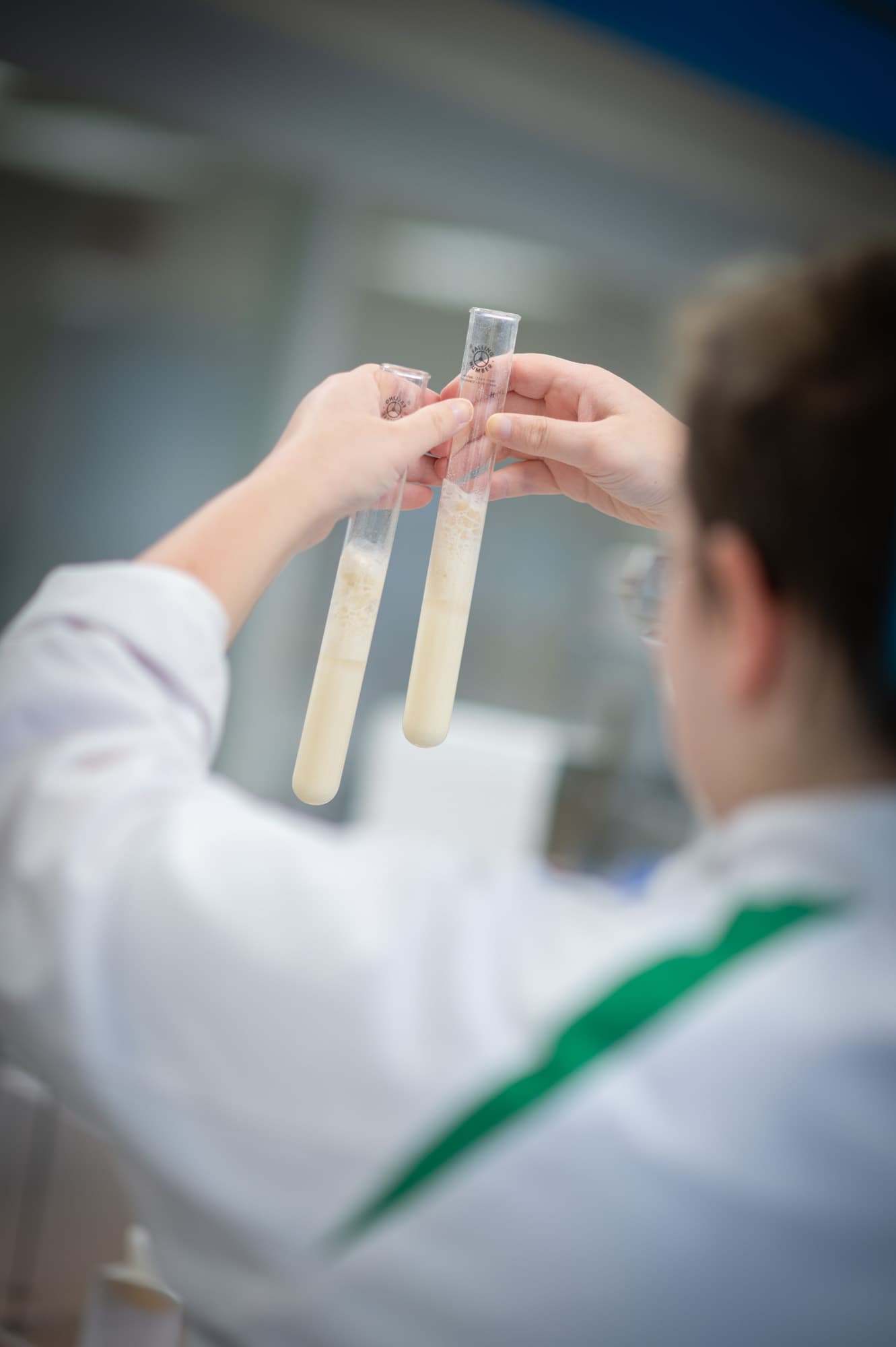
Quality assurance: our quality certificates
Dossche Mills' quality system meets the national and international standards and also responds to customer expectations on sustainability and health to the maximum extent possible.
Quality Assurance (QA) refers to:
All matters related to legislation,
Compliance with quality standards and applicable laws and regulations,
The guarantee on customer quality requirements, such as product specifications, audits, certificates, etc.
Dossche Mills has several existing certificates relevant in the food industry. Among these, the BRC certificate is the most important.


BRC Global Standard for Food Safety (BRC)
BRC is a leading international standard on food safety and quality that adds value in the food industry. This standard sets out the requirements that quality monitoring within a company must meet to ensure the highest possible product safety and customer satisfaction. A BRC certificate implies an annual audit and is only valid for one year, as standards can change regularly. Due to constant developments in the market and food industry, laws and regulations are therefore also updated.
As with most (inter)national standards and quality assurance systems, food safety is managed according to the HACCP (Hazard Analysis Critical Control Points) principles. This assumes that potential product hazards are identified and precautions are worked out for each hazard to prevent, eliminate or at least reduce them to an acceptable level.
BRC certificaat Rotterdam
BRC certificaat Merksem
BRC certificaat Avelgem
BRC certificaat Deinze
Riskplaza+
Riskplaza is a database containing information on food safety and potential hazards of raw materials or ingredients. Basic conditions for obtaining a Riskplaza+ audit certificate are GFSI (for example BRC) certification and successful control of all raw material food safety hazards identified in the Riskplaza database. Thanks to its performing quality system, Dossche Mills effortlessly achieved the Riskplaza+ certificate.
Feed Chain Alliance (FCA) of Good Manufacturing Practices in feed production (GMP+)
To guarantee the quality assurance of by-products (animal feed), Dossche Mills holds the internationally recognised FCA certificate (Belgian mills) or the GMP+ certificate (Dutch mill).
GMP+ certificate Rotterdam
FCA-certificaat Merksem
FCA-certificaat Avelgem
Self-checking system (ACS)
Every food company is legally obliged to set up an auto-control system (ACS) according to HACCP (Hazard Analysis Critical Control Points) principles to ensure food safety, quality and traceability.
If the country where the food company is located has a so-called sector guide or hygiene code, the food company can have its correct compliance certified. The latter is only the case for Belgium. As all Dossche Mills production sites have had BRC certification for years, it was a breeze for the Belgian mills of Dossche Mills to obtain ACS certification.
ACS-certificaat Merksem
ACS-certificaat Avelgem
BIO
Dossche Mills is not only concerned about the safety and quality of its products, but also wants to do its bit to preserve biodiversity and reduce its ecological footprint. That is why we also offer a limited range of flour and cereal products with BIO certification.
BIO certificaat Dossche Mills België
BIO certificaat Dossche Mills France
Roundtable on Sustainable Palm Oil (RSPO)
In addition, we have also achieved RSPO certification. So customers know that we use only sustainably produced oil for palm oil-based products.
The production of palm oil can have a particularly negative impact on the environment and society. It can lead to deforestation, loss of biodiversity and conflicts with local communities. To reduce this negative impact, the RSPO was established, a non-profit organisation that has developed environmental and social criteria for sustainable palm oil.
Some of the RSPO criteria are:
Conservation of forests and other natural habitats
Protection of biodiversity
Management of water and soil
Reducing greenhouse gas emissions
Protecting the rights of workers and local communities
As Dossche Mills is also committed to sustainability, an RSPO certificate for palm oil as a raw material is a logical step to reinforce this company policy. By purchasing raw materials based on sustainably produced palm oil, we support both social interests and the income of local farmers while protecting local fauna and flora. This also ensures the supply of raw materials for future generations. A great example of sustainability from which all involved can benefit.
Check our progress at www.rspo.org

100% Wholemeal label
The '100% wholemeal' label is intended to identify wholemeal bread, as laid down in the Dutch Warenwetbesluit Meel en brood (Commodities Act Decree on Flour and Bread), so that customers can better recognise a wholemeal bread. Thus, it distinguishes wholemeal bread from other wholemeal products, such as bread substitutes, in which wholemeal flour has not been used exclusively as the flour component.
100% Wholemeal Rotterdam
100% Wholemeal Merksem